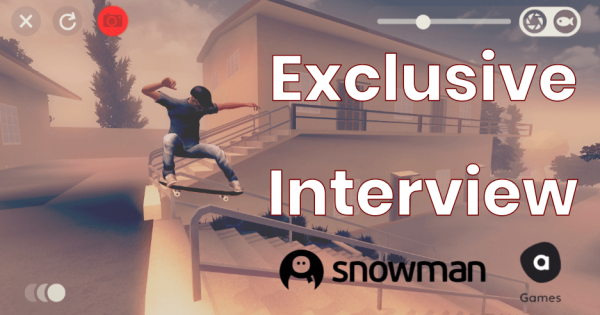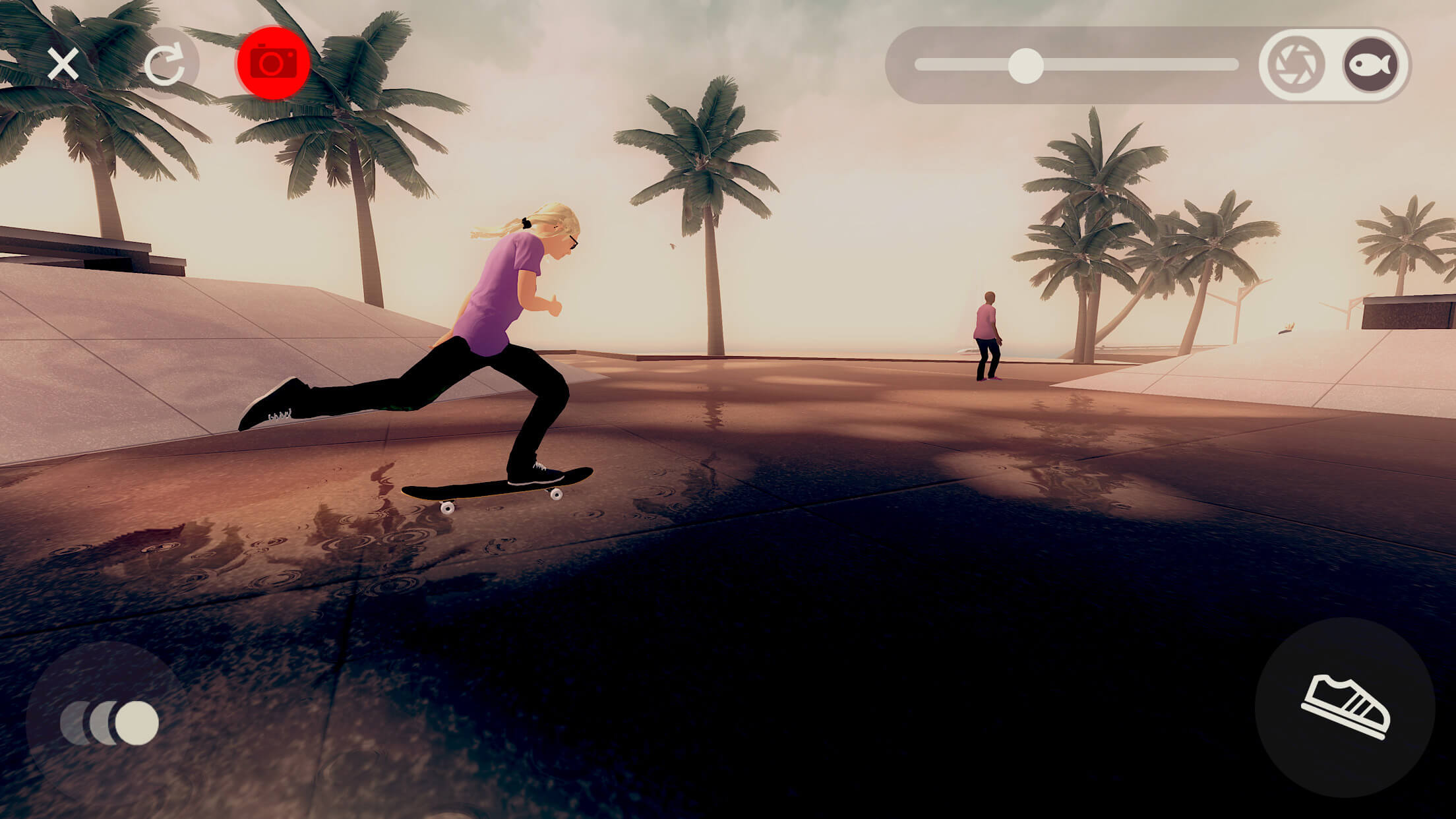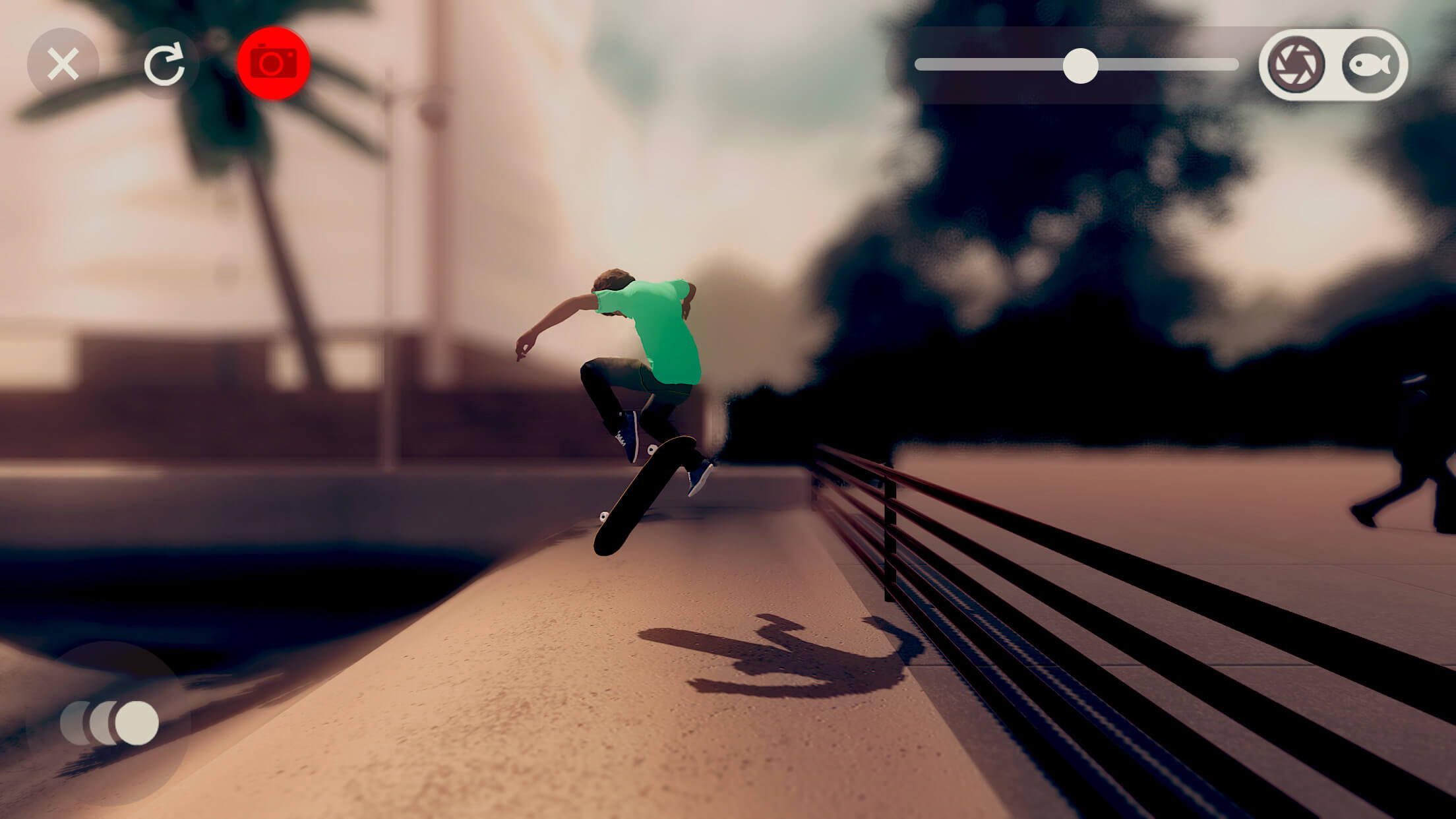Game Devs from from Snowman and Agens Talk Apple Arcade, In-App Purchases, and the Future of Mobile in Exclusive Interview with GamePress

- Snowman, a dev studio for two new Apple Arcade games, and talks with us about IAP’s, Apple Arcade, and the future of mobile gaming
- Andrew Schimmel, Senior Producer from Snowman and Peter Måseide, Lead Game Designer from Agens were interviewed

Set Up
Apple Arcade has been a hot topic since it’s release a few weeks ago, but one question on everyone’s mind has been:
Is it really fair to the developers?
We see the question pop up on Reddit, in editorials across the Internet, and in conversations with gamers themselves. So rather than speculate, we just went right to the source.
Snowman had a hand in two new Apple Arcade titles - Skate City and Where Cards Fall. So we reached out for an interview to ask them about Apple Arcade, their studio, and more generally - the landscape of mobile gaming from their perspective.
We spoke with Andrew Schimmel, Senior Producer from Snowman and Peter Måseide, Lead Game Designer from Agens and what followed was a very candid and insightful conversation around what it means to be a developer in the landscape of mobile games today.
Check it out below and be sure to check out Skate City and Where Cards Fall on Apple Arcade if you haven’t already. Both are excellent games worth playing!
The Interview
GamePress: Snowman is a really interesting studio. There aren't a lot of studios who have a primary focus in building games with such an artful experience. It almost feels like you've got a calling card with each game, sort of like how you can always pick out a Wes Anderson film. What other games influenced your style? Or perhaps what artists or other media?
Andrew: Thank you, that’s really kind of you to say. We’re among a lot of really amazing company in Arcade, there's lots of titles in the service that have really beautiful styles that I think help elevate all of us. We always look around us for inspiration from our peers and contemporaries, but the most credit lies with the artists we work with during development on each game. Everyone always brings their own unique eye to the craft, whether its Harry Nesbitt on the Alto series, Josh Harvey and the whole team that worked on WCF, or Daniel Zeller and Kim Lid on Skate City, each project always has to have its own visual style for us. If there’s similarities between our games its probably due to our own tastes and what appeals to us personally. That style is a really important pillar for us and will always be one of the cornerstones in anything we’re a part of.
We’re big fans of a lot of artists out there. Those that carve out bold and unique styles of their own that catch your eye immediately or are really striking when placed next to anything else always excites us. The people at Campo Santo, That Game Company, & Giant Squid all have done really beautiful things that have really resonated with us. We hope to continue to work on our own style and always do something a little different with each game we release.

GamePress: Apple Arcade is such a cool deviation from the "normal" model of free games with in-app purchases. Some sources have been hesitant about the service for fear that it might not treat developers as well as it should. They see the low price tag of $4.99 a month and fear it isn't enough to pay the dev studios something reasonable. As a studio who took the plunge, do you feel the model is fair to the devs and good for the overall marketplace?
Andrew: We're really happy with the support that Apple has given us, and with this avenue overall for both titles. Arcade allowed us let us make these games the way we always intended to without having to consider how to bake in other monetization loops, or other revenue generating tactics. That was a big relief for us.
We always consider premium first when approaching game development, it's what we know best, and they’re the types of games we gravitate to the most as players ourselves. Our goal with each game is to make an immersive world that can pulls you in and provides an experience you can really dive into. Considering adds, paywalls, or other in app purchase structures is always daunting to us since we feel it really breaks that experience and it can be tricky to implement successfully or ethically…
Apple Arcade has opened a new arena where devs can really consider premium games as a viable business model again. If enough players see the types of high quality games here for this low price tag and we nurture those appetites it makes creating in that space more lucrative for developers and provides players with much better games. We see it as a win win. There are already so many really great games on Arcade and we can’t wait to see what comes next from other creative studios that want to push the boundaries of what we should expect from “mobile” games.
Peter: What we love most about Apple Arcade is that games can be presented to players as they were artistically intended to be There’s no need for compromises that include some types of monetization models. We can only speak for ourselves, and from our studio´s perspective we’re quite happy with how we were able to get on Apple Arcade. We think its an exciting platform both for players who want premium games and for the studios that make them.
GamePress: What was it like working with a big company like Apple on getting your games into the Apple Arcade platform? Was there a long process you had to undergo or did you somehow hear about Apple Arcade and decide you really wanted to get in on that. Or did Apple reach out to you?
Andrew: At Snowman we’ve worked with Apple for a pretty long time. We always considered their platform first when designing apps even back before we were making games, so it was a really exciting opportunity and challenge considering Arcade. I think every developer relationship is unique especially considering each game since there’s such a wide variety of content in terms of size, style and all the other factors that go into each team’s approach. So I think every situation is probably a little unique. We just feel really lucky to have the opportunity to be here for day one of an exciting new time for these types of games.
GamePress: So far, how have you enjoyed your experiences with Apple Arcade? Do they provide analytics that you can look at to see how well your app is doing and if people are playing Skate City or Where Cards Fall often?
Andrew: It’s still really early on, everyone is waiting to see how this new service picks up, but its been really great so far so we’re pretty optimistic. We’re really happy with how the games are doing and being received.
Privacy is a huge part of Apple’s approach and we think that’s a great thing to get behind, it changes the way some games would collect data from their players compared to other platforms say, but we still get the overall numbers that help us gauge our game’s audience.
Peter: Every game on Apple Arcade have to meet Apple´s high privacy standards, and we can't collect or store any data without the users explicit consent. Within these boundaries we have access to some key metrics, for our own game only.
GamePress: What's been the response for Skate City and Where Cards Fall? Obviously you've got two very artistic and very different games that likely had years of development before they came into being. What types of responses are you getting from players? Is there a way you've been able to engage with them easily?
Andrew: It's been so incredible. Both these games have been labours of love for many years and finally getting to see them in the hands of players and hear all the awesome feedback has been huge for the teams behind them. WCF has been rolling around in various states of ideation for about 9 years with 4 years of full time development. Without Apple Arcade it might not exist. To be at the forefront now and hearing how its inspired people to think about relationships in their own lives has been powerful. We’ve gotten a few heart warming tweets from parents that say the game has made them want to go give their child a hug, hearing about those connections and feelings are always a highlight for us once we have something out in the wild.
Similarly with Skate City we’ve gotten an so many really wonderful comments from fans who have played so far. Whether it reminds them of what they loved in skateboarding games in the past, what the environments and the vibe of the game gives them, or how it captures what street skateboarding is all about for them, its super humbling and gratifying to hear. The connections players have to the games makes us really happy.
Peter: What we love the most so far has been users creative approaches with the in-game recording features of Skate City. Seeing what’s been shared on social media is really cool, the videos are really good!
GamePress: After having gone through the process of getting two games on Apple Arcade, do you plan to release future games on that platform or via the app store? For instance, your new (really interesting looking) title Distant -- do you know where you'd like that to be made available?
Andrew: We always consider each title on its own and try to pursue the best avenues for its own merit. That’s unique every time and we like to keep that close to the chest until we’re ready to share with the public for certain. We’d love to continue being a part of Apple Arcade and see that environment grow and push what we come to expect from games in general.
GamePress: Skate City seems to encapsulate so much history. It seems like it came right out of Tony Hawk Pro Skater and the 90's organic feel of what it was like to Skateboard in California in that era. What drew you in to work on a title like that?
Andrew: Skate City has a great deal of respect for skating, and tries to pay homage to the sport’s past and stay open to its future. Skate fans will recognize the spots we’ve blended into each level from famous skate locals in video parts and meccas in the culture. The sport is growing really rapidly and we’ve tried to make room for that with our own take while blending in some more contemporary approaches as well.
A lot of the Authenticity and style of the game has to be credited in a large part to Daniel Zeller’s original concepts. He grew up as a skate fanatic and the DNA of this game comes from his sensibilities. When he reached out to us at Snowman early on in development we connected on a lot of fundamental aspects of the game growing up as skaters ourselves. We’d always wanted to make a skateboarding game ourselves going back to the early days developing Alto’s Adventure. We went out and bought an old PS2 console to play all the Tony Hawk’s Pro Skater games looking for inspiration for Alto and that really stirred our desires to eventually tackle a skate boarding game too. We always wanted to work on something a little more true to form for skateboarding and to try to capture the sense of place you get when you’re riding. Once we started talking to Agens about the game it felt like it could really be something special and different in the genre, so one thing led to another and we joined on as a publisher and partner to help bring the game to life.
Peter: Daniel Zeller, who designed the original game concept, was a sponsored street skater in the days of his youth. As a kid growing up in the 90's he spent all his time skating the streets of Oslo. In the holidays he had several trips to Barcelona to skate all the famous spots there. Skating in LA, the cradle of skateboarding, was his big dream. Unfortunately a series of injuries ended Daniel´s skateboarding career, but his passion for street skating ignited the vision to create a skateboarding game that could capture the vibe of cruising the streets, doing whatever you want and at your own pace. A game that could stay true to skateboarding, but also be accessible for a much wider audience than hard core skaters. As we where several more at Agens sharing his vision we put together a team to make this dream come true.

GamePress: We've talked a lot in the office about in-app purchases and the influence it has on consumers, and how some of us really wish the consumer would be more open to handing over $4.99 for a mobile game up front. What are your general feelings on in-app purchases and the current consumer landscape, and the idea that consumers want apps for free? Do you feel like the current system is good for developers or bad for them? Do you think Apple Arcade will have an impact on that?
Andrew: I think the expectation that you should get all your games for free on mobile platforms is a really prevalent, and unfortunate side effect of how the market evolved. It has a lot to do with how the pressure to adopt those practices grew from the success of some of the largest games within that model. The average consumer probably doesn’t look into the numbers or have access to data showing how successful games are financially in mobile ecosystems, or how the revenue break down works. They just see a trend of games getting cheaper, and cheaper, then eventually free to play with options to buy in for features sprinkled around the game that are easy to skip for some. That seeds a general expectation and we get that.
The reality is that those micro transactions for IAP's are usually only really effective for games that have huge audiences. The meaningful profits also often come from a very small portion of the audience that feels compelled to spend large amounts of money through those buy ins. Sometimes you’ll see IAP’s in games for $99, or really aggressively priced subscriptions that open up a game’s mechanics that feel similar to how casinos or other gambling enterprises operate. There’s often really murky waters to wade through ethically while considering your game’s design within this approach while still being successful financially with a team of people contributing to building something like a game. Game Development is really expensive, so we understand the pressure to try and secure as much of a return as possible for developers. The F2P approach is just something we’ve always been hesitant to really dive into as a studio.
At the same time however the premium environment has really flatlined with the flood of so many free games on the AppStore and its much much worse if not non existent on the Play Store. So now that Apple has opened the gates to a new space where premium games can thrive makes this a very exciting time for studios like ours that have always wanted to pursue games in this vein. We feel like it's an awesome opportunity for players as well. They get to see what a mobile game can be like on your phone when its not riddled with adds and only focuses on the gameplay removed from monetization loops. Hopefully it raises expectations and moves the needle in the conversation around quality gaming experiences on these platforms.
For a long time the the practice of streaming video content for free from big budgeted movies and TV shows was pretty commonplace, maybe even shifting to the norm. Then Netflix came along and showed that a low cost subscription with quality content in a clean end to end experience free from adds was something people wanted. I’d say that worked out pretty well, so we’re really excited to see what developers bring to the table next within Arcade and how this service grows.
Peter: There are a plethora of excellent free to play-games for mobile out there, and regardless of business model I think the biggest struggle for most game developers is to get enough revenue to match their investments. Subscription based services for music or movies have been very successful. If executed well, we think this model could be beneficial for both game developers and players pursuing premium game play experiences.
GamePress: You're pretty open about how you are a small studio on your website and in your press materials. What are some of the challenges you face as a small studio in a market with a lot of apps and games? What are some of the ways that being small has helped you gain a competitive advantage?
Andrew: Being small lets you stay pretty agile. You can move around and try new things pretty quickly and easily without as much risk that a larger studio might have potentially. It also lets each game’s vision stay pretty clear, and that makes development pretty fun. You get to create what you want without the same amount of pressure on a game’s return that a AAA studio has. Every one of those games has to make an insane amount of money with all the people working on them so they might have to consider what’s a guaranteed hit with a wider segment of the population. I could see how that could be limiting in some cases.
At the same time things can take a lot longer to accomplish with a much smaller number of people working on a project. You have to be really lean and disciplined while working within your established constraints. Ballooning scope can be a huge problem for development time and its always a balancing act trying to get everything you want into a game while staying realistic within your resources.
GamePress: Where do you think mobile games are headed? Do you think they'll be able to replace console titles eventually? What type of future do you see for mobile games?
Andrew: The mobile gaming landscape is very bright, especially with the right avenues available where devs can be creative and try new things. The number of homes for indie games seems to be growing and we hope that trend continues. There’s a time and a place to enjoy movies at the theatre or at home, TV series, and great content with even shorter length in places like YouTube and Vimeo. All those outlets within that medium can be artful, enjoyable and benefit from large audiences. We hope gaming gets just as diversified with all kinds of different ways to enjoy games in different veins.
The amount of smart phones and mobile consoles out there with the growing power within these devices means creative constraints will continue to shrink. Developers have a great opportunity to reach new types of players that might not consider themselves “gamers” here, and to alleviate some of the stigma that comes along with those type of titles and the baggage that comes with them. The Art form can be pushed, broadened, an improved upon in new ways, on console and mobile.
Peter: We think that mobile and console games will coexist well at least for the time being. Nothing beats the accessibility of mobile games anywhere or on the go, but even as the quality gap between mobile and console is getting smaller the immersive nature of playing games on a big screen on your couch, alone or with friends is hard to beat.
GamePress: Finally, I have to ask, as a fan of mobile games (and games in general) -- Is there any upcoming release (be it platform, pc, or mobile) that you're really excited to get your hands on?
Andrew: There are so many great titles coming out, its an amazing time for games. I can’t wait to play Death Stranding personally and see what’s going on there.
Peter: We are really looking forward to play Mosaic from Krillbite Studio when it launches on Apple Arcade later this fall.





